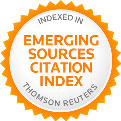The relationship between exercise intensity and performance in drills aimed at improving the proficiency, technical and tactical skills of basketball players. (Relación entre el rendimiento de la capacidad de decisión y la intensidad de ejercicios de asimilación táctica en baloncesto).
Resumen
Training programs for basketball players are often targeted at improving game tactics. The main objectives of this study were: a) to establish a relationship between exercise intensity and performance in basketball technical and tactical proficiency drills; and b) to determine the existing relationship between the opposition exerted by a direct opponent and the exercise intensity needed for the attacker to overcome this opposition. The study participants were 11 basketball players aged 17-18 years who had reached the top level in their age category. The players first underwent an incremental exercise test to establish heart rates corresponding to the ventilatory thresholds VT1 and VT2 as a measure of exercise intensity. Next, they performed a set of game-related technical/tactical exercises in conditions of defensive numerical equality or superiority. In these tests, physiological variables were recorded in contingency tables along with measures of the players’ technical prowess and tactical decision capacity both as qualitative scores and quantitative variables. Our findings indicate that subjects in more physically demanding situations made more incorrect tactical decisions. Also, in conditions of greater opposition by the defence player, the attacker showed a worse tactical decision score and had to make a greater physical effort to overcome this opposition.
Key words: basketball; performance; decision making; technical skills; tactics; exercise intensity.
Resumen
Los principales objetivos de este estudio han sido: a) Establecer una relación entre intensidad y rendimiento en ejercicios de asimilación técnica y táctica en baloncesto, y b) determinar la relación existente entre la oposición de un contrario directo e intensidad del atacante para superarlo. Para la realización de dicho estudio se ha contando con 11 jugadores, de 17-18 años de edad y de máximo nivel en su categoría. Las pruebas realizadas a los sujetos comprendieron una prueba de esfuerzo y pruebas de campo, consistentes en la realización de ejercicios técnico-tácticos de igualdad y superioridad numérica ofensiva, donde se registraron los parámetros fisiológicos necesarios para llevar a cabo el estudio, además de la capacidad de decisión táctica y técnica de los jugadores, tomando como modelo una tabla de registro donde se anotaron, sobre escalas ordinales o cualitativas, aspectos relacionados con los siguientes puntos: Aspectos individuales y Aspectos de la acción de juego. Los resultados manifiestan que sujetos que se encuentran en situaciones de elevada intensidad realizarán un mayor número de decisiones tácticas incorrectas. Además atendemos a que durante una mayor oposición por parte del contrario, mayor equivocación en la toma de decisión del atacante, además de una mayor exigencia física para superarlo.
Palabras clave: baloncesto; rendimiento; toma de decisión; habilidades técnicas; táctica; intensidad del ejercicio.
doi:10.5232/ricyde2009.01401
Texto completo en PDF
---------------------------------------------------------------------
References/referencias
Gretebeck, R.J.; Montoye, H.; Bailor, D.; Montoye, A.P. (1991). Comment on heart rate recording fields studies. Journal of Sport Medical Physical Fitness, 31, 629-631.
PMid:1806746
Kasilkcoioglu, E.; Kayserilioglu, A.; Yildiz, S.; Akhan, H.; Cuhadaroglu, C. (2004). Qt Dispersion in Soccer Players During Exercise Testing. International Journal of Sports Medicine, 25(3), 177-181.
doi:10.1055/s-2003-45256
PMid:15088240
Martinmaki, K.; Rusko, H.; Kooistra, L.; Kettunen, J. & Saalasti, S. (2006). Intraindividual validation of heart rate variability indexes to measure vagal effects on hearts. American Journal of Physiology- Heart and Circulatory Physiology, 290(2), 640-647.
doi:10.1152/ajpheart.00054.2005
PMid:16172170
Riezebos, M.L.; Paterson, D.H.; Hall, C.R.; Yuhasz, M.S. (1983). Relationship of selected variables to performance in women’s basketball. Canadian Journal of Applied Sport Sciences. 8, 34-40.
PMid:6850975
Shirreffs, S.M.; Aragon-Vargas, L.F.; Chamorro, M.; Maughan, R.J.; Serratosa, L.; Zachwieja, J.J. (2005). The Sweating Response of Elite Professional Soccer Players to Training in the Heat. International Journal of Sports Medicine, 26(2), 90-95.
doi:10.1055/s-2004-821112
PMid:15726482
Tessitore, A.; Tiberi, M.; Cortis, C.; Rapisarda, E.; Meeusen, R. & Capranica, L. (2006). Aerobic-anaerobic profiles, heart rate and match analysis in old basketball players. Gerontology, 52(4), 214-222.
doi:10.1159/000093653
PMid:16849864
---------------------------------------------------------------------
Palabras clave/key words
Texto completo/Full Text:
PDF------------------------ 0 -------------------------
RICYDE. Revista Internacional de Ciencias del Deporte
![]()

Publisher: Ramón Cantó Alcaraz
ISSN:1885-3137 - Periodicidad Trimestral / Quarterly

